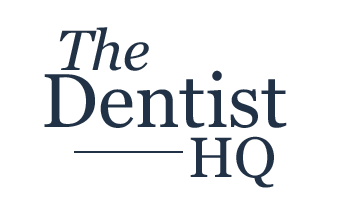1. Urgent Dental Care Incentive Scheme (published 25 September 2025)
The NHS England launched the Urgent Dental Care Incentive (UDCI) Scheme which runs from 25 September 2025 until 31 March 2026. NHS England
Key points
- The scheme is intended to incentivise dental contractors and their teams to provide more urgent dental-care services during the 2025/26 financial year. NHS England
- It sets out guidance for both commissioners and dental providers including eligibility, target calculation, terms and conditions, and payment arrangements. NHS England
Practical implications - For practices providing NHS dental care: it’s essential to assess whether you are eligible for the scheme and understand the target metrics and payment model.
- Planning will be required: identify how your urgent-care capacity can be increased or optimised to meet the scheme expectations.
- Dialogue with commissioners is advisable: clarity on contractual terms, monitoring processes and outcome measures will support delivery.
Strategic relevance - This initiative signals the NHS’s emphasis on urgent-care access in the dental sector — practices that embed responsiveness and flexibility are well-positioned.
- From a corporate-governance viewpoint: participation can demonstrate proactive alignment with system-wide priorities and may enhance the practice’s standing with commissioners.
2. Supervised Tooth-Brushing in Schools (published 11 February 2025)
The article titled “Professor Green backs supervised tooth-brushing in schools” describes a campaign in the South West region. NHS England
Key points
- Professor Green (rapper and health-activist) is supporting this scheme in primary schools, particularly in areas with high rates of tooth-decay among five-year-olds. NHS England
- The scheme engages children aged 3-5 in short daily tooth-brushing sessions plus healthy-eating and sugar-reduction education; nearly one in five five-year-olds in the region have tooth-decay. NHS England
Practical implications - For dental practices or community dental teams: engage with local schools or educational bodies to support supervised-brushing schemes and embed oral-health education.
- Consider outreach programmes or partnerships (e.g., supplying toothbrush kits, educational sessions) to align your practice with preventive efforts.
- For commissioners: these programmes underline the value of early-intervention preventive care — which may reduce avoidable hospital admissions and improve long-term outcomes.
Strategic relevance - Preventive-care investment is increasingly emphasised in NHS policy. A practice that demonstrates leadership in prevention may strengthen its relationship with local integrated care boards (ICBs) and local dental networks (LDNs).
- From a corporate director’s perspective: supporting such initiatives enhances reputation, community value and may contribute to long-term patient-flow stability.
3. Partnership with Retailer on Mouth-Cancer Awareness (published 27 July 2024)
While a little older, this announcement remains relevant: the NHS and the retailer ASDA teamed up to put mouth-cancer-awareness messaging on millions of toothpaste and mouthwash bottles. NHS England
Key points
- The packaging will include NHS advice encouraging individuals to contact their GP or dentist if they notice suspicious symptoms (e.g., a persistent ulcer, red/white patch, lump, difficulty swallowing). NHS England
- The initiative is part of the broader drive to detect mouth and throat cancers earlier, in line with the NHS’s ambition to raise early-stage diagnosis rates. NHS England
Practical implications - For dental practices: this public-awareness effort may lead to increased patient presentations for suspected mouth cancer; ensure your triage and referral protocols are robust.
- For communications/marketing teams: align practice-materials (websites, waiting-rooms) to reflect the public-messaging and encourage timely attendance.
- For commissioners and providers: early-detection pathways are critical — consider how your practice fits into local cancer referral networks.
Strategic relevance - Collaborative public-health initiatives (retail partnerships) indicate that oral health is being integrated with broader health-promotion campaigns. Practices that align themselves with these may gain reputational and operational benefit.
- From a governance lens: emphasising early detection and public awareness supports the broader NHS system ambition of prevention and early intervention.
4. Broader Strategic Context
Beyond specific announcements, there are other strategic-framework documents and policy drivers that matter:
- The document “Oral healthcare provision for cancer pathways” (Dec 2024) sets out guidance for equitable access to oral healthcare for patients with a cancer diagnosis. NHS England
- The “Leading the change for oral health” page outlines major initiatives: dental-contract reform, local dental networks, clinical leadership and patient-safety frameworks. NHS England
These underscore that the dental sector is not operating in isolation: the intersect between oral health, general health and system-reform is intensifying.
5. Key Take-aways for Practice Directors and Dental Leadership
- Operational compliance & readiness: Be alert to incentive schemes (like the UDCI) and ensure your practice tracks eligibility, reporting and performance metrics.
- Prevention-first mindset: Engage proactively with early-intervention programmes (school-based brushing, community outreach) — they support population health and long-term business sustainability.
- Collaboration is critical: Whether via public-health messaging with retail partners, or clinical pathways for cancer-patients, integration with broader NHS campaigns enhances service value.
- Strategic alignment: The NHS’s direction emphasises prevention, early detection, equitable access and integration. Practices which align their strategy accordingly will be better positioned with commissioners, payers and patients.
- Communications matter: Whether to patients, staff or community partners — consistent messaging about oral health, early detection and access will reinforce your practice’s position as a trusted provider.

